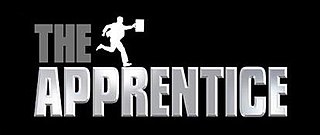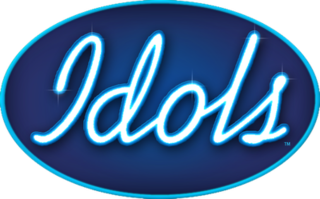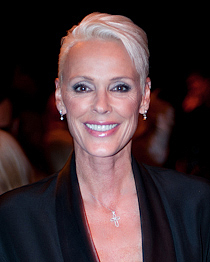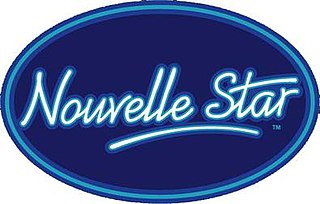
Big Brother is a Dutch reality competition television franchise created by John de Mol Jr., first broadcast in the Netherlands in 1999 and subsequently syndicated internationally. The show features contestants called "housemates" or "HouseGuests" who live together in a specially constructed house that is isolated from the outside world. The name is inspired by Big Brother from George Orwell's novel Nineteen Eighty-Four, and the housemates are continuously monitored during their stay in the house by live television cameras as well as personal audio microphones. Throughout the course of the competition, they are voted out until only one remains and wins the cash prize.
Who Wants to Be a Millionaire? is an international television game show franchise of British origin, created by David Briggs, Mike Whitehill and Steven Knight. In its format, currently owned and licensed by Sony Pictures Television, contestants tackle a series of multiple-choice questions to win large cash prizes in a format that twists on many game show genre conventions – only one contestant plays at a time, similar to radio quizzes; contestants are given the question before deciding whether to answer, and have no time limit to answer questions; and the amount offered increases as they tackle questions that become increasingly difficult. The maximum cash prize offered in most versions of the format is an aspirational value in local currency, such as one million pounds in the UK or 75 million rupees in India.

The Apprentice is a reality talent game show franchise originally aired in 2004 in the United States.

Fame Academy was a British television talent competition to search for and educate new musical talents. The winner received a chance to become a successful music artist and part of the international franchise Star Academy known under various titles in various countries.

Idol is a reality television singing competition format created by British television producer Simon Fuller and developed by Fremantle. The format began in 2001 with the British television series Pop Idol; its first adaptation was the Polish series Idol in 2002. It has since become the world's most widely watched television franchise, as well as one of the most successful entertainment formats, adapted in over 56 regions around the world, with its various versions broadcast to 150 countries with a worldwide audience of roughly 3.2 billion people. The franchise has generated more than $2.5 billion in revenue.

Brigitte Nielsen is a Danish actress, model, and singer. She began her career modelling for Greg Gorman and Helmut Newton. She subsequently acted in the 1985 films Red Sonja and Rocky IV, later returning to the Rocky series in Creed II (2018). Nielsen married Sylvester Stallone, with whom she starred in the 1986 film Cobra. She played a villain in Beverly Hills Cop II (1987) and starred as the Black Witch in the 1990s Italian film series Fantaghirò. She later built a career starring in B-movies, hosting TV shows, and appearing on reality shows.

You're a Star is an Irish music competition series broadcast by RTÉ One from 2002 to 2008. Produced by the broadcaster and Screentime ShinAwiL, the series was similar to formats such as Idol and The X Factor.
Star Academy is a Dutch reality television talent show TV format that first aired in the Netherlands.

Star Academy is a French reality television. It was produced by the Dutch company Endemol. It consists of a contest of young singers. It spawned an equally successful show in Canada called Star Académie. It was broadcast on TF1 and NRJ 12 (2012). At the end of each season, selected contestants would go on tour around France, Morocco, Switzerland, Belgium, Tunisia, and other French-speaking countries.
RTL is a Hungarian free-to-air television channel owned by RTL Group.
Deutschland sucht den Superstar is a German reality talent show. Part of the Idol franchise, it was created by British media mogul Simon Fuller as a spin-off from the British show Pop Idol, of which two series were broadcast between the years of 2001 and 2003. Debuting to mediocre ratings in November 2002 on the RTL network, the show has since become one of the most successful shows on German television.

Nouvelle Star is a French television series based on the popular Pop Idol programme produced by FremantleMedia. It was broadcast by M6 in seasons 1–8 before D8 aired seasons 9—12. M6 broadcast the 13th and final season.
This second series of Fame Academy was broadcast in the UK over thirteen weeks from July to October 2003. It was won by Alex Parks. The judging panel of the show consisted of Richard Park, Carrie Grant, David Grant and Robin Gibb during the live shows. Jonathan Ross was a judge on the final giving his opinions on the acts.
The Villa was a reality TV show, originally produced by Talent TV from 1999, and aired on Sky1 for four series until 2003. Reruns previously aired on Fox Reality until this station closed. The Dutch version ran sporadically until 2019, when it was cancelled due to a case of sexual assault.
Popstars is a German reality television series that began its first installment on the RTL II network on 14 November 2000. Part of the international Popstars franchise, it originated from the New Zealand reality programme of the same name.

RTL9 is a French-language Luxembourgish television channel shown in Luxembourg, France, Monaco, Africa and the French-speaking regions of Switzerland.

X Factor is a Franco-Belgian television music talent show to find new singing talent after public auditions, intermediate tests, and live shows. The first season was broadcast on Mondays, from September to December 2009, on W9 (France) and RTL-TVI (Belgium).
Become One was a German boy/girl pop band. The six-members of the band were chosen by a casting German reality television show called Fame Academy, a German version of the international Star Academy franchise and hosted by Nova Meierhenrich on the German television channel RTL II. The band was formed in 2003 and had two singles and one album.
Rising Star is an international singing reality competition television franchise based on the Israeli singing reality competition television series HaKokhav HaBa which is produced by Keshet Broadcasting Ltd. The program format lets viewers vote for contestants via mobile apps. It has become a rival to the Idols franchise, The Voice and The X Factor.

Taskmaster is a British comedy panel game show created by comedian and musician Alex Horne and presented by both Horne and Greg Davies. In the programme a group of five celebrities – mainly comedians – attempt to complete a series of challenges, with Horne acting as umpire in each challenge and Davies, the titular "Taskmaster", judging the work and awarding points based on contestants' performances. The concept for the programme was first created by Horne for the Edinburgh Festival Fringe in 2010; he later secured a deal with Dave to adapt it for television with the first episode premiering in 2015. After the ninth series in 2019, the programme was acquired by Channel 4.









